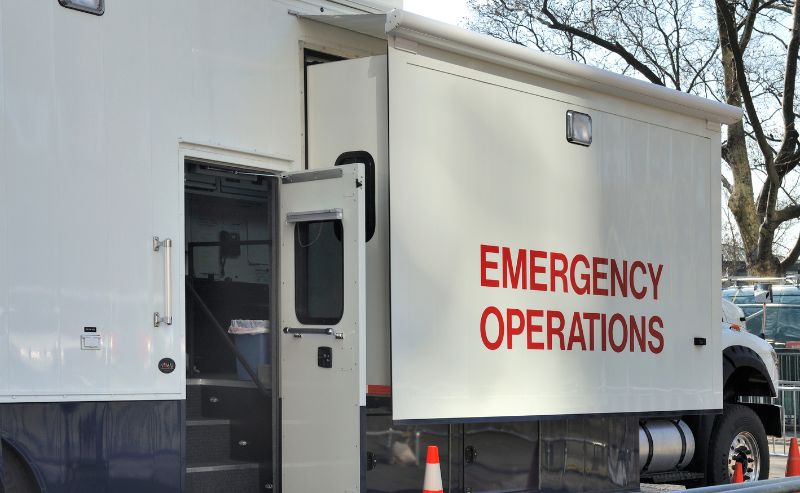Continuity of operations (COOP) planning is more than a good business practice. It is fast becoming a business necessity for commercial organizations such as retailers, hospitals, airlines, and state, local, tribal, and territorial (SLTT) governments. Services provided by SLTT governments, including law enforcement, public health, and transportation, are crucial to everyday life and should not be interrupted for any reason.
Interestingly, and perhaps even surprisingly, SLTT governments sometimes seem to struggle the most when developing and maintaining COOPs. Why? Primarily because they have to do more with less—fewer people, scarcer resources, and reduced funding. But several other obstacles often impede the COOP planning efforts of SLTT governments too. Among them are a general lack of COOP awareness, a funding myth, and a common misconception about planning difficulty.
In this blog post, BOLDplanning, a division of Agility, will address these three obstacles one by one and shed some new light on how to overcome them going forward.
Lack of awareness
Continuity is a word that many people often only associate with information technology. However, continuity extends beyond computer networks and data security in today’s world. It encompasses every department or division within an organization, including those of SLTT governments, and pertains to every aspect of business, from accounting to the delivery of certain services. Still, a general need for awareness of organization-wide continuity exists.
COOP plans identify all of an organization’s essential functions, along with the actions and resources necessary to ensure their continuance both during and after a business disruption. They also address:
- Delegations of authority
- Succession planning
- Alternate facilities
- Interoperable communications
- Vital records and databases
- Human capital
- Programs for testing, training, and exercising
- Plans for devolution (aka “failover”) and reconstitution (the return to business as usual)
Given these pertinent details, it is evident that COOP planning should not (and typically does not) take place in a vacuum. Any number of designated individuals can be involved in the plan’s development, continued maintenance, and execution. Therefore, it is imperative to keep everyone apprised of the plan’s specifics and their designated roles and responsibilities as they relate to it.
As a best practice, take advantage of every opportunity, including department/division meetings, workshops, and exercises, to raise awareness for the plan and its significance to your SLTT government and the community it serves. Review the plan’s contents regularly (once per year at a minimum and every six months if possible) and make necessary improvements. Such simple actions will help keep continuity top of mind and improve the plan’s viability.
A funding myth
Like many other organizations nationwide, SLTT governments must continually look for funding sources to support specific goals and objectives. COOP planning is no exception. Still, many SLTT governments do not understand that one funding source, the Emergency Management Performance Grant (EMPG), is available to them for COOP planning purposes.
The EMPG, according to FEMA, provides SLTT emergency management agencies with the resources required to implement the National Preparedness System and works toward the National Preparedness Goal of a secure and resilient nation. The EMPG’s allowable costs support efforts to build and sustain core capabilities across the prevention, protection, mitigation, response, and recovery mission areas.
Over the last three years, the EMPG has made over $1.1 billion available to assist SLTTs in preparing for all hazards, including developing and enhancing COOPs. This equates to $355.1 million in fiscal year 2023, $405.1 million in fiscal year 2022, and $355.1 million in fiscal year 2021.
So, if your SLTT government has yet to consider this source of funding for COOP planning before, consider it now. Information pertaining to the FY2023 allocation can be found online at https://www.fema.gov/grants/preparedness/emergency-management-performance/fy-23-faqs.
A common misconception
While COOP planning may be essential to an organization’s resilience, it often causes apprehension. Plan development and maintenance is commonly perceived as tedious, time-consuming, and downright burdensome between marshaling people and resources, collecting information from different departments or divisions, plan assembly and distribution, and plan updating.
COOP planning is no walk in the park. But it doesn’t have to be the worst of projects either. This is especially true for organizations, including SLTT governments, that embrace automation and/or seek guidance from continuity planning professionals.
Consider the BOLDplanning.com platform, for example. This comprehensive, online system walks planners, novice to advanced, through each step of the COOP planning process, thus becoming the central resource for an organization’s plan development, training, and ongoing maintenance. Additionally, users of the BOLDplanning.com platform have the support of a team of subject matter experts unrivaled in their knowledge, experience, and planning certifications.
COOPs are one of the most important plans that any organization, especially SLTT governments, can now possess. This is especially true given the frequency and severity of natural and human-caused disasters, continually evolving technological hazards, and increasing threats to homeland security. Don’t let the “do more with less” mindset, a lack of COOP awareness, the funding myth, or the common misconception of planning difficulty hinder your continuity planning efforts. None of these obstacles, as evidenced by other SLTT governments nationwide, is insurmountable when the proper measures are in place.






